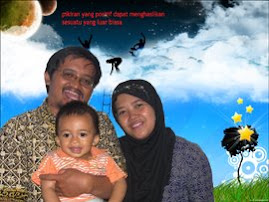
At this stage, you'll finally know that your baby was listening intently during all those "conversations" you had with her. She'll let you know that she understands what you say, and she'll respond with some "words" of her own.
Keep those toys and games coming, and encourage your baby's exploration of the world. She is becoming more mobile and independent, but she won't want to be separated from you for very long.
What will my baby learn?
Your baby will be demonstrating her understanding of what you say in several ways. She'll look at objects and people when you say their names, she'll crawl to toys that you ask her to find, and she'll do lots of pointing and gesturing in response to your words. She should already respond well to her own name, and she should look up (and at least pause) when you firmly say, "NO!"
Your baby is continuing to explore the world of objects. Now that she can get around on her own, she'll find objects all over the house to pick up, shake, bang, throw and put in her mouth. Make sure the objects she finds are safe for all of these activities.
While this object exploration continues, she'll now understand the functions of some objects. She will recognize familiar objects and understand their purpose. For example, she might see a washcloth, know that it's for washing and may hold out her hands for it.
Your baby's new mobility is very exciting for her, but she's still learning the principles of object and person permanence, so she probably won't let you out of her sight for long. She'll play her own "peekaboo"-type games: she'll round the corner where she can no longer see you, then peek around the corner to make sure you're still there. Alternatively, she'll round the corner, then make a sound or do something that she knows will bring you to her.
She will know repetitive games like "pattycake" all the way through and will recognize the slightest variation. Her attention span will be short, but when you have her attention, she'll be able to point to a picture of a familiar object in a book when you say the object's name.
During this period, your baby begins to understand that people are unique individuals and separate from herself. This realization usually leads to separation anxiety; you may find that your baby has a difficult time being separated from you during the day and at bedtime. This is a perfectly normal development at this age and nothing to be concerned about - keep your exits short and sweet, and try to enjoy your baby's attachment to you while it lasts.
What should I do?
Your baby is getting around now, and that means she's finding all sorts of things to get into. Make sure your home is a safe place for learning and play by checking your childproofing efforts around the house.
Be sure to supply your baby with toys and household objects that will develop her hand-eye coordination. As you probably know by now, just about anything is a toy to your baby. She is likely to play with egg cartons and empty cardboard boxes with the same enthusiasm she shows for large blocks, balls, stacking toys, and push-pull toys. Give her squeeze toys and cups and containers to splash around with during bath time.
Whenever you can get your busy baby to sit still for a moment, read to her from books with large, colorful illustrations. Encourage her to point out people and objects in the pictures.
Some games for babies in this age group include:
Peekaboo
Cover your face with your hands, then remove your hands and say: "Peekaboo, I see you!" Some babies have an insatiable appetite for this game; you may be playing it over and over for a few months.
This Little Piggy, The Itsy Bitsy Spider, and Pop Goes the Weasel
Babies love to learn these nursery rhymes and anticipate the accompanying movements.
One, Two, Buckle My Shoe
A counting game ideally suited for climbing up and down stairs.
Hide-and-Seek
This game exploits your baby's understanding of object and person permanence. Hide your baby's toys - or yourself - and encourage her to seek.
Don't place conditions on your baby's play by requiring her to accomplish certain tasks or meet specific goals. If play becomes instruction, your baby may become bored or (even worse) feel that your love or attention is dependent upon how well she performs the task.
Learning milestones
By the end of this period, most babies can:
• Bring two cubes together
• Put objects into a container and take them out
• Poke with an index finger
• Try to imitate words and gestures
There is a wide range of what is normal for babies, and there is usually no cause for concern. But if you find that your baby is not doing these things, discuss it with your pediatrician.
Senin, 22 September 2008
Learning, Play and Your 8-12 Month Old
Langganan:
Posting Komentar (Atom)





Tidak ada komentar:
Posting Komentar